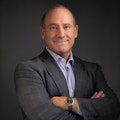We live in an era of unprecedented public dishonesty, blurring the lines between fact, opinion and noisy speculation. This is bad for America and American business: Democratic capitalist societies require truth and transparency for their institutions to remain viable.
Of course, there is nothing new about politicians and propagandists spreading disinformation and promoting “alternative facts.” Technological improvements in printing led to pamphlet wars in 16th and 17th century Europe that facilitated the rapid spread of political deceit. In the mid-20th century, Nazi Germany and Soviet Russia elevated the official use of lying to new levels to manipulate the disgruntled and sow confusion and fear among the public. More recently in the United States, the New Left introduced moral relativism to substitute new non-bourgeois “facts” for old, while the New Right cast doubts on the hard science behind evolution, vaccines and climate change.
Yet we’ve reached a new pinnacle. Today we live in the Age of the Big Lie, where in the words of historian Deborah Lipstadt, “No fact, no event, and no aspect of history has any fixed meaning or content.”
Earlier this year, Science published a study of fake news on Twitter over a 10-year-period and found 126,000 dishonest tweets, which altogether were retweeted more than 4.5 million times. According to the analysis, false stories reach 1,500 people six times quicker, on average, than true stories. That can lead to dangerous consequences, such as crackpots attacking a small pizza shop—one that had held a fundraiser for Hillary Clinton—in the farcical belief that a pedophile ring was located in the basement.
Contemporary technology not only allows the spread of misinformation and disinformation farther and faster than ever before, but it also creates opportunities for dishonesty never before possible. We’re not just talking about Russian troll factories hoodwinking Facebook. Modern snake oil hucksters can convincingly adapt technology to sway public opinion—this spring writer/actor Jordan Peele and Buzzfeed demonstrated just how easy this is by producing a bogus video of former President Obama insulting his successor.
All this has created the potential for an American cultural crisis of distrust, authoritatively captured in two recently published analyses.
In “Truth Decay,” the RAND Corporation lays the blame for the deteriorating role of facts and data in public life on four primary causes:
1. The rise of social media
2. An overtaxed educational system that cannot keep up with changes in the “information ecosystem”
3. Political and social polarization
4. And—perhaps due to all of these factors—the increasing tendency of individuals to create their own subjective social reality, otherwise known as “cognitive bias.”
“The Death of Truth” by Pulitzer-Prize winning book critic Michiko Kakutani explores the waning of integrity in American society, particularly since the 2016 elections. Daniel Patrick Moynihan’s observation that “everyone is entitled to his own opinion, but not to his own facts,” is more timely than ever, Kakutani says: “polarization has grown so extreme that voters have a hard time even agreeing on the same facts.” And no wonder: Two-thirds of Americans get at least some of their news through social media—a platform that has been overwhelmed by trolls and bots, and which uses algorithms to decide what each of us gets to see.
Executives ignore the cultural shift away from honesty at their peril. For starters, publicly traded companies are very vulnerable. The stock market plunged $130 billion in one day in 2013 when someone hacked into the Associated Press Twitter account and tweeted about an “explosion” that injured President Obama. Four years later, when the next president attacked Amazon for causing financial losses in the U.S. Postal Service—refuted by a number of sources including snopes.com—that company’s stock value slid 3%.
But the damage goes deeper than stock prices. Transparency and trust are at the heart of business transactions in a free market society. When people see no moral obligation to be honest, they will use deceit to undermine businesses with policies or practices they oppose. Think of the implications for crowdsourced review forums like Yelp, Google+, and Angie’s List, which drive many consumer business decisions today. A culture of blatant dishonesty also threatens our legal system, through which businesses are already subject to frivolous litigation. Finally, it poses a threat to our political system. Public officials now apparently feel uninhibited to make false accusations and brandish personal opinions as facts. When U.S. politicians become no more trustworthy than their counterparts in authoritarian countries, corruption and cronyism will prevail.
Perhaps it is too late to halt this cultural shift. But business leaders have an obligation to try to help preserve the trustworthiness and fairness that is the foundation of our democratic capitalist system.
Stephen Gold is president and CEO of the Manufacturers Alliance for Productivity and Innovation (MAPI).
About the Author

Stephen Gold
President and Chief Executive Officer, Manufacturers Alliance
Stephen Gold is president and CEO of Manufacturers Alliance. Previously, Gold served as senior vice president of operations for the National Electrical Manufacturers Association (NEMA) where he provided management oversight of the trade association’s 50 business units, member recruitment and retention, international operations, business development, and meeting planning. In addition, he was the staff lead for the Board-level Section Affairs Committee and Strategic Initiatives Committee.
Gold has an extensive background in business-related organizations and has represented U.S. manufacturers for much of his career. Prior to his work at NEMA, Gold spent five years at the National Association of Manufacturers (NAM), serving as vice president of allied associations and executive director of the Council of Manufacturing Associations. During his tenure he helped launch NAM’s Campaign for the Future of U.S. Manufacturing and served as executive director of the Coalition for the Future of U.S. Manufacturing.
Before joining NAM, Gold practiced law in Washington, D.C., at the former firm of Collier Shannon Scott, where he specialized in regulatory law, working in the consumer product safety practice group and on energy and environmental issues in the government relations practice group.
Gold has also served as associate director/communications director at the Tax Foundation in Washington and as director of public policy at Citizens for a Sound Economy, a free-market advocacy group. He began his career in Washington as a lobbyist for the Grocery Manufacturers of America and in the 1980s served in the communications department of Chief Justice Warren Burger’s Commission on the Bicentennial of the U.S. Constitution.
Gold holds a Juris Doctor (cum laude) from George Mason University School of Law, a master of arts degree in history from George Washington University, and a bachelor of science degree (magna cum laude) in history from Arizona State University. He is a Certified Association Executive (CAE).
